LATEST NEWS
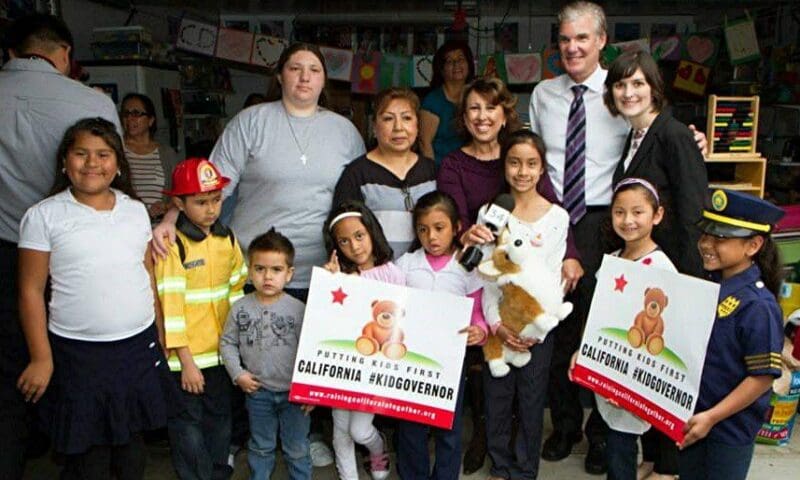

Like thousands of family child care providers across Los Angeles County, Ramona Duran’s day begins at a frantic pace. While most Angelenos are still asleep, Ramona is up before sunrise preparing for the first family to arrive at 5 a.m. at the Long Beach day care center she operates. She checks on the status of a healthy breakfast cooking in the kitchen and makes some last minute arrangements of the play area. Ramona’s Day Care is not a baby-sitting service; it is the center of her community and a labor of love. What she loves most is taking care of the “little ones” and helping families.
“I help the family to go to school, to go to work [and] go to the doctor,” Ramona says. She truly enables families to thrive.
Unfortunately, thousands of women who serve our youngest and most at-risk children struggle to make ends meet — family child care providers earn less than $20,000 per year.


Today, Mayor Garcetti will deliver his first State of the City address to outline his goals and vision for the coming year. One can expect a focus on his “back to basics” message of creating a stronger economy and more efficient and effective city government. As he delineates those “basics” and how he hopes to achieve them and pay for them, the Mayor needs to make sure he is taking a full accounting of what’s happening in his own City Hall backyard – ensuring that the fulfillment of his vision doesn’t come at the expense of our streets, communities or workers. An item that requires his immediate attention is the draining of hundreds of millions of dollars from city taxpayers each year.
It turns out that the city of Los Angeles spends more than $200 million on annual fees to Wall Street banks and other financial institutions. This eye-popping figure is detailed in a new research report released by Fix LA,
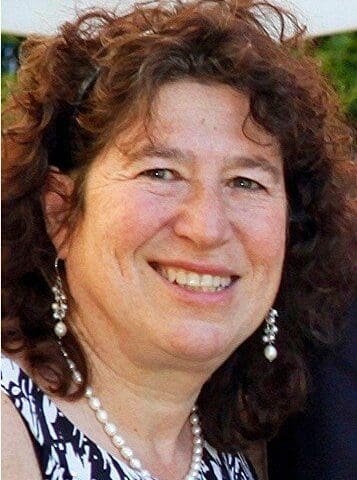

Everyone is talking about living wages, but few have actually written the laws that stand behind them. Margo Feinberg has done just that. As an activist labor attorney for more than 30 years, she has played a critical part in shaping groundbreaking legislation, including a worker retention law to ease the plight of workers in industries that change management frequently, as well as a landmark superstore ordinance to protect neighborhoods from the blight that often follows in the wake of a Walmart. Currently, Feinberg is involved in a campaign to secure sick days for nonunion grocery store workers, many of whom have no such benefit. In recognition of her accomplishments and commitment to economic justice and working families, she will be honored at the Los Angeles Alliance for a New Economy’s Women for a New Los Angeles Luncheon on May 9. We spoke to Ms. Feinberg about her life and work,
» Read more about: Giving Workers a Voice: An Interview With Margo Feinberg »


About seven years ago I was at my first meeting of an education advisory board, staring out the window at the panoramic view of the Santa Monica Mountains, when a fellow sidled up and began making casual conversation. We exchanged a few pleasantries, when he leaned in to tell me in a confidential hush that he had a $34,000 tax problem. Taken aback, I first thought, How odd that he should share such a thing — and figured maybe he wanted sympathy.
Then it occurred to me that his tax problem was more than half what I had made altogether that year, so I said, “If you have that big a problem, you must have the resources to deal with it.” He backed away and never spoke to me again at that meeting, or at any thereafter.
I suppose that makes sense. He assumed I don’t like taxes the way he dislikes them.
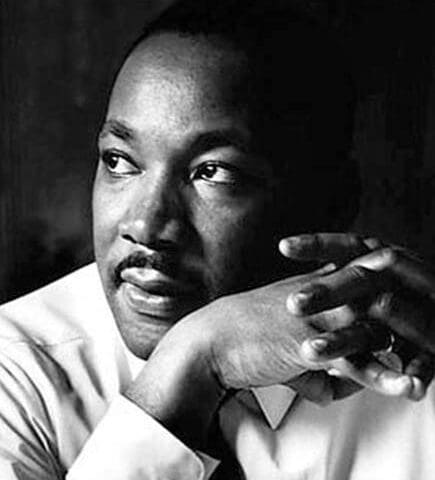

Most Americans today know that Reverend Martin Luther King Jr. was killed 46 years ago in Memphis, Tennessee. But fewer know why he was there.
King went to Memphis to support African American garbage workers, who were on strike to protest unsafe conditions, abusive white supervisors, and low wages — and to gain recognition for their union. Their picket signs relayed a simple but profound message: “I Am A Man.”
If he were still alive, King would surely join the growing campaigns to unionize and improve pay and working conditions for janitors, security guards, hotel workers, hospital employees, farmworkers, grocery employees, and others who earn poverty-level wages. He might disrupt Walmart stockholder meetings to demand that the company pay employees a living wage, join fast-food workers in their quest for decent pay, and urge consumers to boycott the Gap, Walmart and other companies until they stop manufacturing their products in overseas sweatshops.
» Read more about: MLK’s Last Campaign Was for Workers’ Rights »
Gone but certainly never forgotten, Pete Seeger’s life and music will stand front and center this Saturday afternoon as the Ash Grove Foundation honors him with a hoedown on Wilshire. The lineup features a mix of 10-minute musical tributes, personal recollections and spoken word. Guests will include local blues demigod Bernie Pearl, singer Claudia Lennear (seen in the documentary Twenty Feet From Stardom) and civil rights movement protest singer Len Chandler. (Grammy-winning singer Ben Harper, ex-Blaster Dave Alvin, Chicano rockers Quetzal and others are unconfirmed invited artists.)
If the music isn’t enough to draw you in, City of Quartz author Mike Davis will also participate in the proceedings, as well as poet-filmmaker S. Pearl Sharp and people’s lawyer Art Goldberg – there’s even talk of his sister Jackie appearing, too. See you there at the First Unitarian Church’s Fritchman Hall, 2936 W. Eighth St.;
» Read more about: Pete Seeger: A Tribute to His Music and Legacy »


As the saying goes, it takes a village. And when corporations spend vast resources to gain control of public services, it takes a village of smart, savvy and nimble people and organizations to beat them back. That’s exactly what happened in Arizona this week.
Last Friday, Arizona House Appropriations Chairman John Kavanagh snuck $900,000 into the state budget earmarked for GEO Group, the nation’s second largest private prison company. That amount was above and beyond the $45 million GEO already rakes in from Arizona taxpayers. Interestingly, the Arizona Department of Corrections did not request the increase. According to the Arizona Republic, GEO’s lobbyists worked directly with Kavanagh, who, when asked to justify the earmark, said simply that GEO “wants to get more money.”
Private prison critics quickly sprang into action. The American Friends Service Committee and Human Rights Center helped lead a strong coalition that included the American Civil Liberties Union,
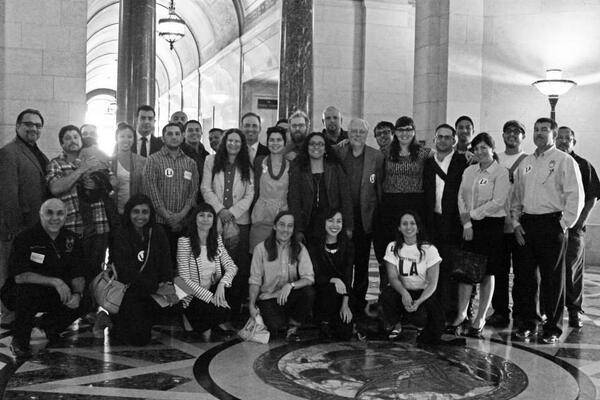
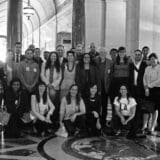
On Tuesday — April Fools’ Day no less — Los Angeles’ City Council nearly unanimously approved the Zero Waste LA Franchise System, which would make it the first and largest city nationally to adopt a robust plan to move towards Zero Waste. The Zero Waste LA Franchise System, under the direction of the City of Los Angeles’ Bureau of Sanitation, will transform the antiquated waste and recycling system that currently serves apartment dwellers and businesses. In its place will emerge an innovative model for the nation. This new system will carve the city into 11 waste service zones intended to boost recycling and provide strong customer service – a similar success found in the city’s single-family waste and recycling programs.
The Zero Waste LA franchise plan specifically requires trash-hauling companies to bid for exclusive contracts to operate in the 11 waste service zones. This will help the city to meet its Zero Waste goals,
» Read more about: Los Angeles City Council Boldly Approves Zero Waste LA Plan »


We’ve written on more than one occasion here about the travesty that is the National Collegiate Athletic Association (NCAA) and its treatment of big-time college athletes. So obviously we take great pleasure in the ruling last week, made by a regional director of the National Labor Relations Board (NLRB), that said football players at Northwestern University are employees and ordered an election for those employees to decide if they want to be members of the College Athletes Players Association (CAPA).
The ruling itself is one the feds can be proud of, properly reducing the question of employee status to its core issues—do the players perform a service for money, subject to the control of the person paying them the money?
With football players, the answers are pretty clear. Their coaches require them to sign a contract, make them work 60-70 hours some weeks, control their lives down to the most minute detail and in exchange give them various forms of compensation,
» Read more about: Of Football and the Limits of Labor Law »
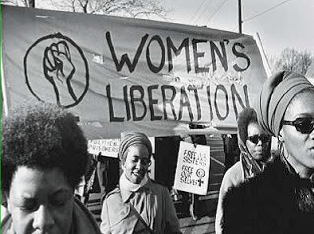
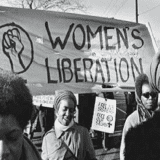
The civil rights movement of the 1960s is now iconic. Who would speak out against its aims? And the farm workers are finally getting their due as Cesar Chavez and the power of the organization he led are being recalled in film and literature. But who speaks up for the women’s liberation movement? In popular culture, its activists were usually portrayed as self-centered, bra-burning,* man-hating New Yorkers.
To create an historic record of what really happened in the women’s movement, and to rescue it from ridicule and misconceptions, Boston University recently organized a conference titled, “A Revolutionary Moment: Women’s Liberation in the Late 1960s and Early 1970s.” The gathering drew more than 600 people — about two-thirds women activists and academics of that certain age, and one-third younger women and men interested in getting the history right.
In the opening conference session feminist historian Sara Evans explained that the spark that lit women’s liberation came from the other movements of the 1960s,


Working families know that making ends meet is not easy. Low and stagnant wages cannot cover the ever-increasing cost of basic expenses, leaving workers and consumers constantly scraping the bottom of the barrel. Nearly half of all Americans lack the incomes they need to be secure, according to research by Wider Opportunities for Women (WOW).
In Los Angeles, these challenges have inspired a new proposal to give workers in the city’s largest hotels a raise to $15.37 an hour. Across the country there is a growing national movement to raise the federal hourly minimum wage to $10.10.
Renewed attention to issues of economic insecurity and income inequality provide us an opportunity to ask an important fundamental question: what do working families really need to get by?
WOW answers this question by crunching the numbers. Our Basic Economic Security Tables™ measures the incomes that California’s working families need by determining the true cost of households’ basic expenses – such as food,


Two and a half years after the Occupy Movement jolted the country, America is once again abuzz with talk about poverty and inequality. Of course, along with a heightened focus on the problem come lots of ideas for fixing it. Some are smart, others are not, but nearly all of them share one thing in common: They are complicated.
The status quo “solution” isn’t complicated – at least on paper. It’s the one proposed by former Reagan official Herbert Meyer, who, on his website The Cure for Poverty, offers a three-word remedy: the free market.
Meyer, who worked at the CIA, may have been too busy warding off the enemy to notice that market forces have enjoyed one of the most unfettered periods in recent American history, even as poverty and inequality have risen inexorably. But he is surely onto something with his one-step prescription.
So I have my own,
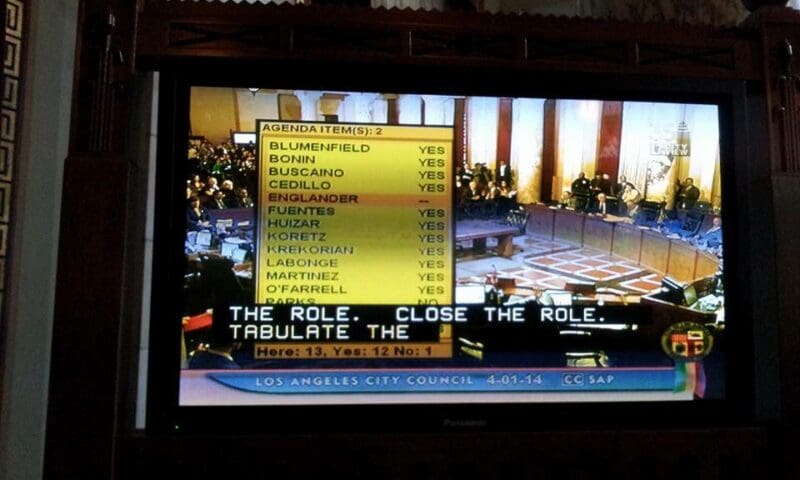

The movement to make Los Angeles the country’s largest city to employ an exclusive franchise system for hauling its commercial and multi-family waste drew tantalizingly close to completion today, as the City Council voted 12-1 to replace the current Byzantine hodgepodge of trash pickup routes servicing businesses and apartment buildings with a completely different model. The historic vote took place this morning, with Councilman Bernard Parks providing the lone dissenting vote. Because the vote was not unanimous, a final vote must take place April 8.
Although the City of L.A.’s Bureau of Sanitation provides hauling service for houses and four-unit apartment complexes, a wild frontier system characterizes the remaining commercial and residential pickups, resulting in fleets of trash trucks, whose owners often pay their workers low wages, crisscrossing the city on uncoordinated schedules. The consequence has been extra wear and tear on roads, and increased air pollution.
The new system will divide the city into 11 pickup zones,
» Read more about: Historic Victory for Zero-Waste Campaign »
The race to replace Zev Yaroslavsky on the Los Angeles County Board of Supervisors is on. Candidates John Duran, Sheila Kuehl, Bobby Shriver and Pamela Conley Ulich are battling to represent the Third District, which includes the wealthy Westside communities of Malibu, Pacific Palisades and Beverly Hills, along with large swaths of the San Fernando Valley. The four debated March 27 at the Los Angeles Press Club‘s Steve Allen Theater in Los Feliz. Hosted by the club and moderated by KPCC contributor Patt Morrison, the debate drew a crowd of journalists and political professionals dressed for the office, sprinkled with more casually clad community members.
Attorney and West Hollywood City Councilman Duran began a round of introductions by describing himself as a “pro-business Democrat” and called attention to his city’s fiscal stability. Former California state Senator Sheila Kuehl emphasized her experience and knowledge of county issues,
» Read more about: L.A. County Supervisor Candidates Debate »
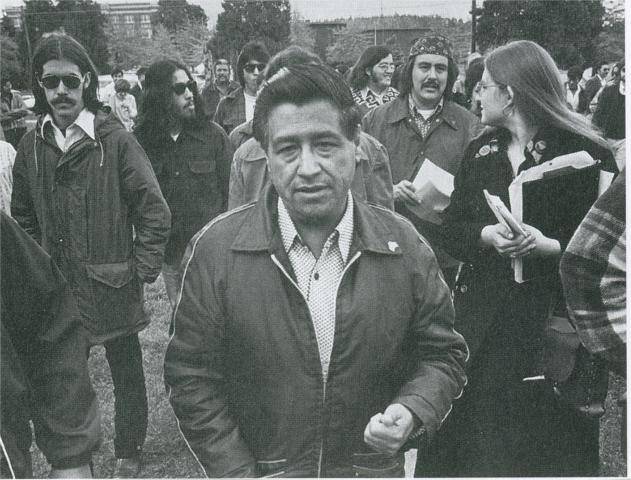
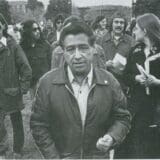
Many people thought Cesar Chavez was crazy to think he could build a union among migrant farmworkers. Since the early 1900s, unions had been trying and failing to organize California’s unskilled agricultural workers. Whether the workers were Anglos, Chinese, Japanese, Filipinos or Mexican Americans, these efforts met the same fate. The organizing drives met fierce opposition and always flopped, vulnerable to growers’ violent tactics and to competition from a seemingly endless supply of other migrant workers desperate for work. So when Chavez left his job as a community organizer in San Jose in 1962 and moved to rural Delano to try, once again, to bring a union to California’s lettuce and grape fields, even his closest friends figured he was delusional.
Within a decade, however, the United Farm Workers (UFW) union had collective bargaining agreements with most of California’s major growers. Pay, working conditions and housing for migrant workers improved significantly.


There haven’t been, to put it mildly, many films about America’s labor movement. Take away Salt of the Earth (1954) and Norma Rae (1979) and what are you left with? Cesar Chavez, then, offers to fill a cavernous void in the public’s knowledge about both union organizing and the history of the country’s mostly Latino agricultural workforce. Directed by the Mexican actor and film producer Diego Luna (Y Tu Mamá También, Elysium), the film follows Chavez (Michael Peña) from the time he parted company with the grassroots Community Service Organization (CSO) to the signing of union contracts with growers following a successful consumer boycott of table grapes.
Working with a screenplay by Keir Pearson, Luna wisely passes on a sweeping Gandhi-style treatment of Chavez’s entire life. This allows Luna and cinematographer Enrique Chediak to linger on the arid poetry of life in California’s Central Valley (played here by Sonora,


When Diego Luna was growing up in Mexico he’d sometimes hear references to Cesar Chavez and the union of farm workers he had organized in America. Luna, who would become one of his country’s leading film stars, remembers being struck as a 13-year-old by television images of Chavez’s funeral – the man was so modest, his coffin was an unpainted wooden box. A few years ago Luna began assembling a production company to film one critical chapter in Chavez’s life – the 10-year period in which he formed the United Farm Workers Organizing Committee and which culminated with the triumph of the consumer grape boycott. Cesar Chavez opens this week and Luna, while in Los Angeles to promote the film, spoke to Capital & Main about the movie, the man and the movement he created.
Capital & Main: Your film is a biography but is there something more behind it?
I think its message is of what we can do when we unite.
» Read more about: Interview With ‘Cesar Chavez’ Director Diego Luna »


Today in Los Angeles attorneys will offer closing arguments in Vergara v. California, a lawsuit funded by Silicon Valley millionaire David Welch and others with ties to the school privatization movement under the banner of a front organization called Students Matter. The suit wrongly attacks as unconstitutional California statutes covering teacher employment, including the current two-year probationary period, the due process protections built into teacher dismissal and layoff procedures that value experience over more arbitrary factors.
That the probationary period is even an issue is a little mind-boggling; if a principal can have a teacher on staff for two years and still have no idea if that teacher is effective, he or she probably has no business being a principal. At trial, award-winning superintendents and principals have testified that two years is more than enough time to decide whether to keep a teacher on staff and,
» Read more about: Vergara Lawsuit Would Hurt California Students »
When Dan Flaming, the president of the Economic Roundtable research group, describes the tanking of the L.A. economy in the 1990s, he pinpoints the cause to the loss of thousands of aerospace jobs. However, he explains, it was only immigrant migration that rescued Los Angeles financially. The skills, hard work and entrepreneurial energy of the estimated 100,000 immigrants who came here each year between 1989 and 2000 fueled an informal, low wage economy that kept the city humming. (See Flaming discuss L.A.’s present economic climate in the interview above.)
Listen to podcast interview with Dan Flaming
While many people have blamed immigrants for job losses, it was actually the end of the Cold War and subsequent job cuts in aircraft and related industries that led nearly 1.5 million people to leave L.A. for other parts of the U.S.
In their place immigrants arrived and provided work that was completely legal,
» Read more about: Confronting L.A.’s Economy, Past & Present »
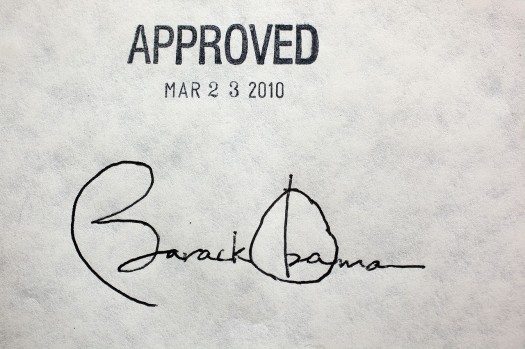

As a writer I bounce from job to job. When not working at LAANE, I have to pay for my own health care – whose monthly premiums, over the past few years, have threatened to surpass my monthly grocery bill. So naturally I was more than glad when the Patient Protection and Affordable Care Act – aka, Obamacare – became law in 2010. I know a bit about what it’s like to have and not have health care. My brother was stricken with a rare form of cancer in his early twenties. He survived against some pretty big odds – but only because of my father’s great health insurance, which allowed my brother to be treated at a leading research hospital. I also lived through the height of San Francisco’s AIDS pandemic and saw what uninsured people went through: days spent in hospital waiting rooms, often minimal care, overcrowded rooms and life-threatening delays for medical procedures.